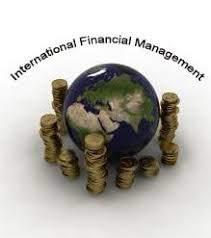Is PGDM in International Finance Worth It?
Introduction to International Finance and Its Growing Importance

In today’s globalized world, international finance plays a pivotal role in shaping economies, businesses, and individual careers. It encompasses the study of monetary transactions, investments, and financial decisions that cross international borders. As businesses expand globally, the demand for professionals skilled in international finance has surged. For those aspiring to specialize in this domain, pursuing a Postgraduate Diploma in Management (PGDM) with a focus on international finance might seem like a promising choice.
This article delves into whether a PGDM in international finance is worth it, examining its benefits, career opportunities, and relevance in the modern financial system.
Understanding International Finance in the Context of PGDM
International finance is a specialized branch of finance dealing with the dynamics of global financial markets, exchange rates, foreign investments, and international trade. A PGDM program focusing on international finance equips students with:
- Comprehensive knowledge of global financial systems.
- Skills to analyze and manage cross-border transactions.
- Expertise in risk management, foreign exchange, and international regulations.
Unlike a traditional MBA in finance, a PGDM in international finance often emphasizes practical applications and contemporary trends in global finance.
Benefits of Pursuing a PGDM in International Finance
1. Global Perspective
A PGDM in international finance provides a broad understanding of how financial systems operate globally. Students gain insights into international trade, global investment strategies, and cross-border economic policies.
2. Industry-Relevant Curriculum
The curriculum is designed to align with the needs of modern businesses, focusing on:
- International financial markets.
- Foreign exchange management.
- International taxation and trade policies.
3. Networking Opportunities
PGDM programs often foster industry connections through guest lectures, internships, and alumni networks. These interactions can open doors to opportunities in multinational companies and global financial institutions.
4. Skill Development
Key skills developed during the program include:
- Financial modeling and analysis.
- Cross-cultural communication.
- Strategic decision-making in international contexts.
5. Career Advancement
A specialization in international finance enhances employability, with roles available in banking, consultancy, investment firms, and multinational corporations.
Career Opportunities After a PGDM in International Finance
1. Roles in Multinational Companies
Graduates can pursue roles such as:
- Financial Analyst: Assisting organizations in investment decisions across global markets.
- Risk Manager: Managing financial risks in international operations.
2. Opportunities in Financial Institutions
Banks, investment firms, and insurance companies seek professionals with expertise in international finance to handle foreign exchange and cross-border investments.
3. Consultancy and Advisory Roles
Graduates can provide advisory services to companies looking to expand globally, helping them navigate international financial regulations and strategies.
4. Government and Regulatory Bodies
International finance experts are also in demand in government agencies and organizations like the International Monetary Fund (IMF) or the World Bank.
PGDM vs. MBA in Finance: Key Differences

While both PGDM and MBA in finance programs offer a robust understanding of financial principles, there are some distinctions:
- Practical vs. Theoretical Focus: PGDM programs tend to emphasize practical applications and case studies, while MBA programs might lean more toward theoretical frameworks.
- Industry Relevance: PGDM courses are updated frequently to reflect current industry trends, making them more aligned with market needs.
- Certification and Recognition: An MBA in finance is typically a degree program, while a PGDM is a diploma. However, reputed institutions offering PGDM often have accreditation that matches or exceeds that of MBA programs.
Challenges to Consider Before Enrolling
1. Cost of the Program
PGDM programs can be expensive, especially those offered by top-tier institutions. Prospective students should evaluate the return on investment.
2. Rigorous Curriculum
The curriculum can be demanding, requiring commitment and consistent effort to excel.
3. Competition in the Job Market
While the specialization provides an edge, competition for roles in international finance is intense. Building additional skills and certifications can help.
Tips for Maximizing the Value of Your PGDM in International Finance
- Internships: Gain hands-on experience in global financial markets.
- Certifications: Complement your PGDM with certifications like CFA (Chartered Financial Analyst) or FRM (Financial Risk Manager) for added credibility.
- Networking: Build connections with industry professionals and peers.
- Continuous Learning: Stay updated with the latest trends in international finance and the global financial system.
Conclusion: Is It Worth It?
A PGDM in international finance is undoubtedly worth it for individuals aiming to build a career in global financial markets. It equips students with the knowledge, skills, and industry exposure required to thrive in today’s interconnected financial ecosystem. However, success depends on choosing a reputed institution, leveraging networking opportunities, and continuously enhancing your skill set.
If you are passionate about finance and aspire to work on a global platform, a PGDM in international finance can be a transformative step toward a fulfilling career.
Is PGDM in International finance Worth it? SCORE OF 3.5/5